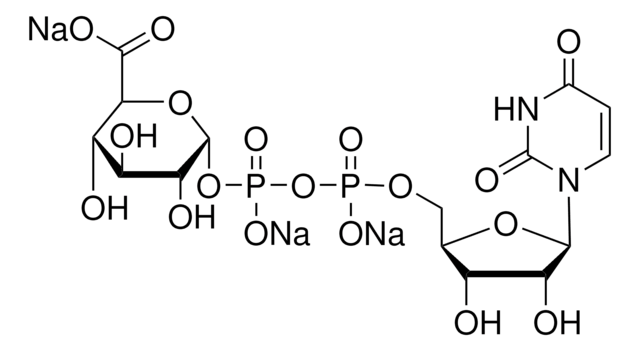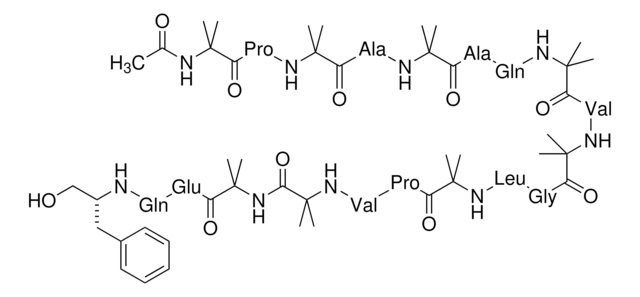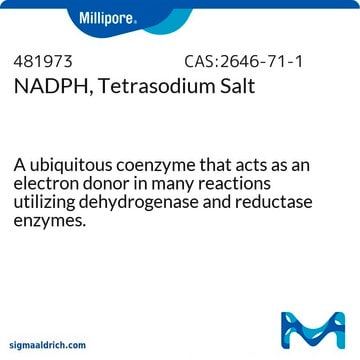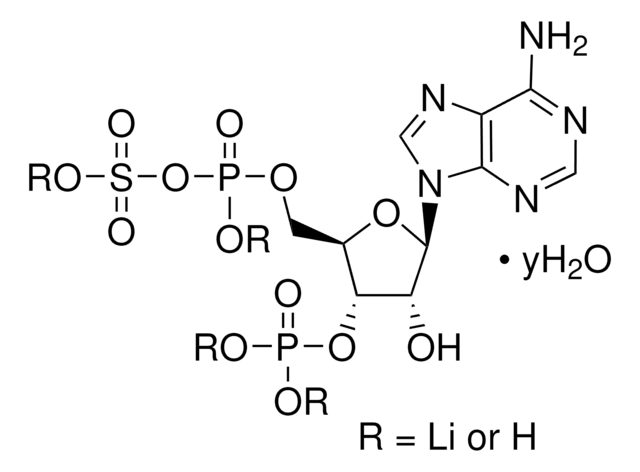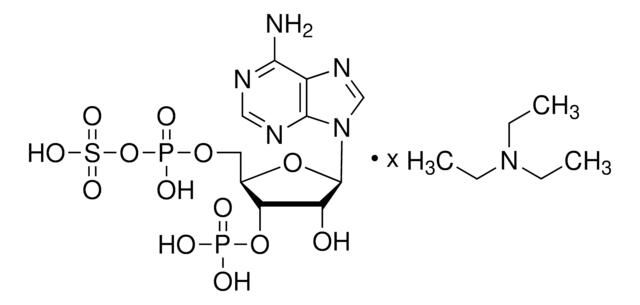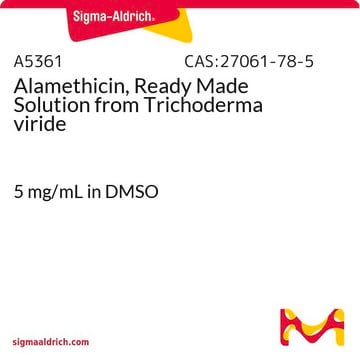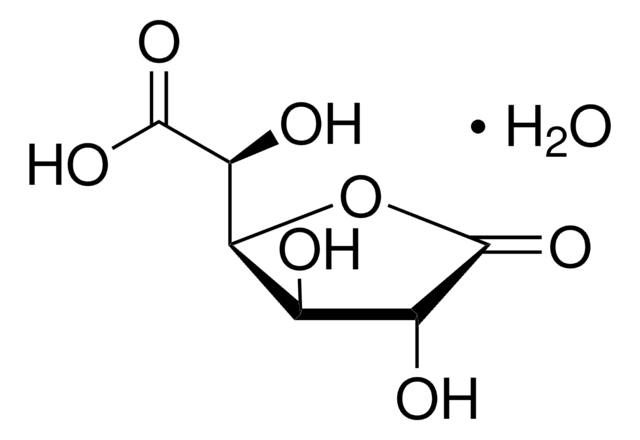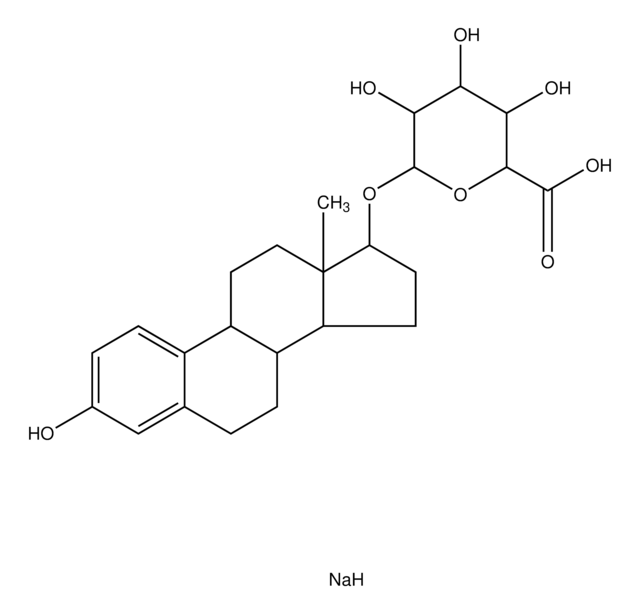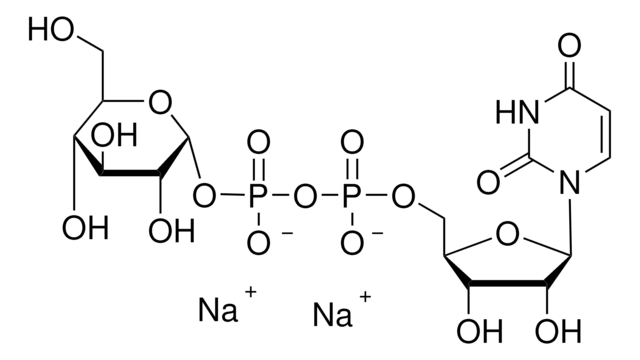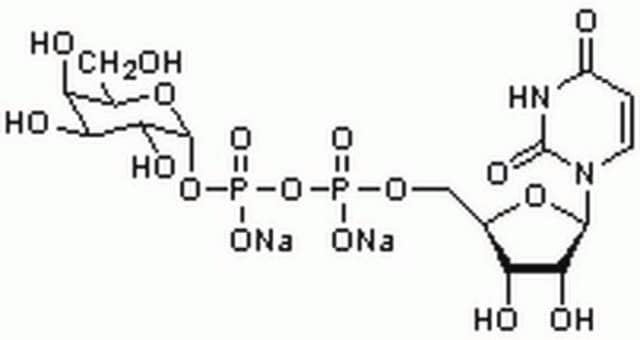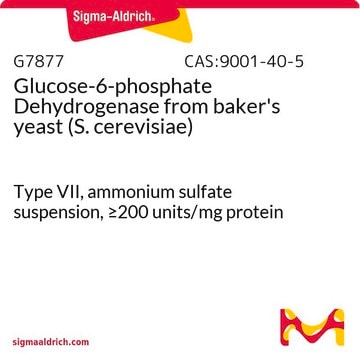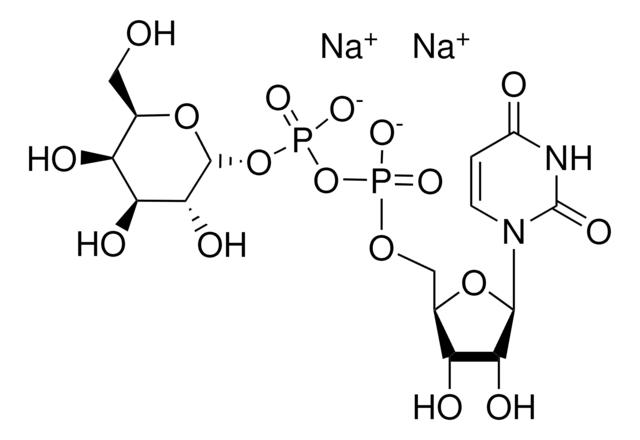U5625
Uridine 5′-diphosphoglucuronic acid ammonium salt
98-100%
Synonym(s):
UDP-GlcA, UDPGA, Uridine-diphosphate-glucuronic acid ammonium salt, Uridine[5′]diphospho[1]-α-D-glucopyranosuronic acid ammonium salt
About This Item
Recommended Products
biological source
Saccharomyces cerevisiae
enzyme from bovine liver (catalase)
enzyme from rabbit muscle (LDH)
Quality Level
Assay
98-100%
form
powder
storage temp.
−20°C
SMILES string
N.O[C@@H]1[C@@H](O)[C@H](O[C@@H]([C@H]1O)C(O)=O)OP(O)(=O)OP(O)(=O)OC[C@H]2O[C@H]([C@H](O)[C@@H]2O)N3C=CC(=O)NC3=O
InChI
1S/C15H22N2O18P2.H3N/c18-5-1-2-17(15(26)16-5)12-9(22)6(19)4(32-12)3-31-36(27,28)35-37(29,30)34-14-10(23)7(20)8(21)11(33-14)13(24)25;/h1-2,4,6-12,14,19-23H,3H2,(H,24,25)(H,27,28)(H,29,30)(H,16,18,26);1H3/t4-,6-,7+,8+,9-,10-,11+,12-,14-;/m1./s1
InChI key
WMWKTCPGFOEPBD-YGIWDPDDSA-N
General description
Application
Biochem/physiol Actions
Signal Word
Warning
Hazard Statements
Precautionary Statements
Hazard Classifications
Eye Irrit. 2 - Skin Irrit. 2 - STOT SE 3
Target Organs
Respiratory system
Storage Class Code
11 - Combustible Solids
WGK
WGK 3
Flash Point(F)
Not applicable
Flash Point(C)
Not applicable
Personal Protective Equipment
Certificates of Analysis (COA)
Search for Certificates of Analysis (COA) by entering the products Lot/Batch Number. Lot and Batch Numbers can be found on a product’s label following the words ‘Lot’ or ‘Batch’.
Already Own This Product?
Find documentation for the products that you have recently purchased in the Document Library.
Customers Also Viewed
Articles
Explore tools for glycosyltransferase synthesis and modification of glycans, such as glycosyltransferases and nucleotide sugar donors.
LC-MS/MS method quantifies similar polar nucleotide activated sugars using Supel™ Carbon LC column for simultaneous analysis.
Enzymatic glycosyltransferase specificity challenges the one enzyme-one linkage concept.
Our team of scientists has experience in all areas of research including Life Science, Material Science, Chemical Synthesis, Chromatography, Analytical and many others.
Contact Technical Service